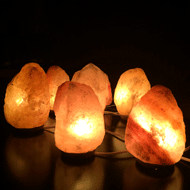Poisoning case sparks salt lamp warning

The cat ingested toxic levels of salt simply through licking a Himalayan salt lamp.
Vets in New Zealand have shared a warning on the dangers of Himalayan salt lamps in the home after a cat nearly died from salt poisoning.
The cat, Ruby, was presented to First Vets in Whanganui, with various neurological signs, including difficulty walking, impaired senses and inability to eat or drink.
Blood samples revealed extremely high levels of sodium and chloride. After ruling out other conditions, vets asked Ruby’s owners if there was any way she could have ingested a large amount of salt. It was then that they realised she had taken an interest in a salt lamp in the lounge.
She had ingested toxic levels of salt simply through licking the lamp. However, it was the first time the practice had seen this occur in a cat.
Vets began supportive therapy to gradually bring the patient’s sodium and chloride levels down to normal, with the help of intravenous fluids and potassium supplementation.
The practice posted an update on its Facebook page yesterday: ‘We are pleased to report that Ruby’s neurological signs resolved and her blood sodium and chloride levels returned to normal today.’



 The Federation of Independent Veterinary Practices (FIVP) has announced a third season of its podcast, Practice Matters.
The Federation of Independent Veterinary Practices (FIVP) has announced a third season of its podcast, Practice Matters.